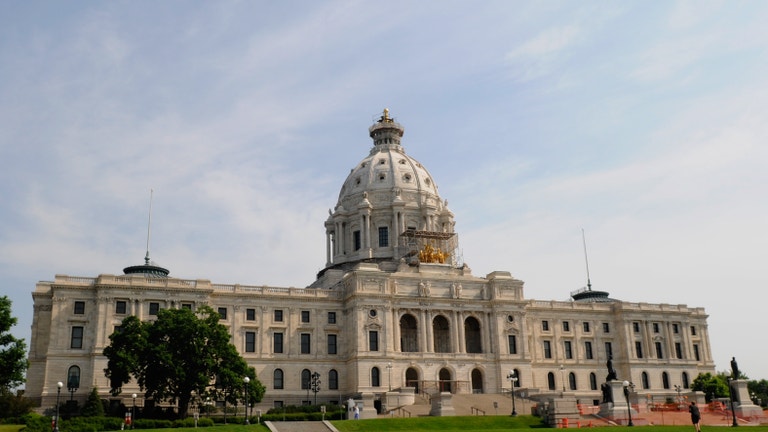Gizmodo Brian Kahn | Apr 13, 2019
 Photo: Getty
Photo: Getty
Everyone always looks to California for climate action, but don’t sleep on the Midwest. On Thursday, Minnesota legislators introduced a sweeping new bill modelled after Alexandrio Ocasio-Cortez’s Green New Deal.
But their bill and its rollout differs in one huge way: they let teens lead the way in crafting and introducing it, a first for climate legislation. The press conference and bill may be less visible than 1.5 million students in the streets, but it’s a landmark moment as young adults open up a new front in the push for climate action.
“This is our future, and we’re actually taking action on it,” Anna Grace Hottinger, a 16 year old sophomore who helped author the bill, told Earther.
Hottinger is part of the group Minnesota Can’t Wait, a youth-led climate advocacy group that has been pushing for climate action at the state level. The idea of a bill arose in the fall and the group has been meeting with Minnesota state legislators for months, including a January meeting Governor Tim Walz shortly after his inauguration.
After that meeting, he announced a working group on climate change, something that’s fine but pretty standard fare for kicking the can down the road.
The Minnesota Green New Deal bill represents a much more dramatic step. Introduced by state Representative Frank Hornstein and Senator Scott Dibble along with 17 co-sponsors, the legislation follows the outlines of the Green New Deal resolution introduced at the federal level earlier this year.
The bill requires the state to run on 100 per cent carbon-free energy by 2030 and puts a moratorium on fossil fuel permitting. It also requires commissioners of various state agencies to come up with plans for decarbonisation of different sectors, including transportation and agriculture, as well as divesting the state’s pension system from fossil fuels.
Throughout, the text nods to the need for getting input from a wide range of groups including unions, low income communities, people of colour, and tribes. Hottinger said those provisions were really important, and that Minnesota Can’t Wait reached out to trade unions and other groups who would be impacted for feedback on the proposed text.
The bill is ripe with language on how the state can help facilitate a just transition to a clean energy economy, from jobs training to identifying any economic impact the shift could have on electricity rates.
“The Minnesota Green New Deal not only represents a bold agenda toward climate change, but also represents a new style of politics, one that values people over profits,” Tiger Worku, a junior from Minneapolis, said at the press conference announcing the bill on Wednesday.
Unlike the national Green New Deal, this is a bill, not a resolution. If passed and signed into law, that would fast track Minnesota to start radically transforming its economy for the 21st century.
But it’s that process of young adults engaging on climate change that shows what a new era of policymaking could look like. Young adults have grown up in this world painfully aware of the peril adults have put them in, and the recent wave of youth activism shows that they’re ready to take matters into their own hands. The climate strikes and growing power of groups like the Sunrise Movement show some of the avenues where young adults are pushing on the system from the outside (and it obviously doesn’t hurt to have allies like Ocasio-Cortez and others on the inside).
But the Minnesota Green New Deal legislation is a significant step in the sense that young adults aren’t just advocating for policies that will determine their future, but shaping those policies and building coalitions to back them.
“This is the first I’ve ever witnessed high school students write a bill,” Hornstein said at the press conference announcing the legislation. “They wrote it with a nonpartisan staff, but it’s really their bill. They went door-to-door to get 17 co-sponsors. I’ve never see anything quite like it.”
The bill’s introduction is only the first step, and it’s not immediately clear if it can pass, especially given a Republican-controlled state senate and the fact that it has no Republican co-sponsors. The response to Governor Walz’s proposal in March to decarbonize the electric grid by 2050 provides a hint of what kind of reaction the Green New Deal bill could engender.
David Osmek, the Republican chairman of the senate’s Committee on Energy and Utilities, said Walz’s earlier proposal “ignores the stark reality that we will always have a need for traditional energy generation methods, which includes carbon-based options.”
Hottinger said Minnesota Can’t Wait is planning to continue drumming up support, though, by organising town halls around the state and continuing outreach to legislators on both sides of the aisle. The group is also asking for hearings, something Congress has pointedly not done with the federal version of the bill.



